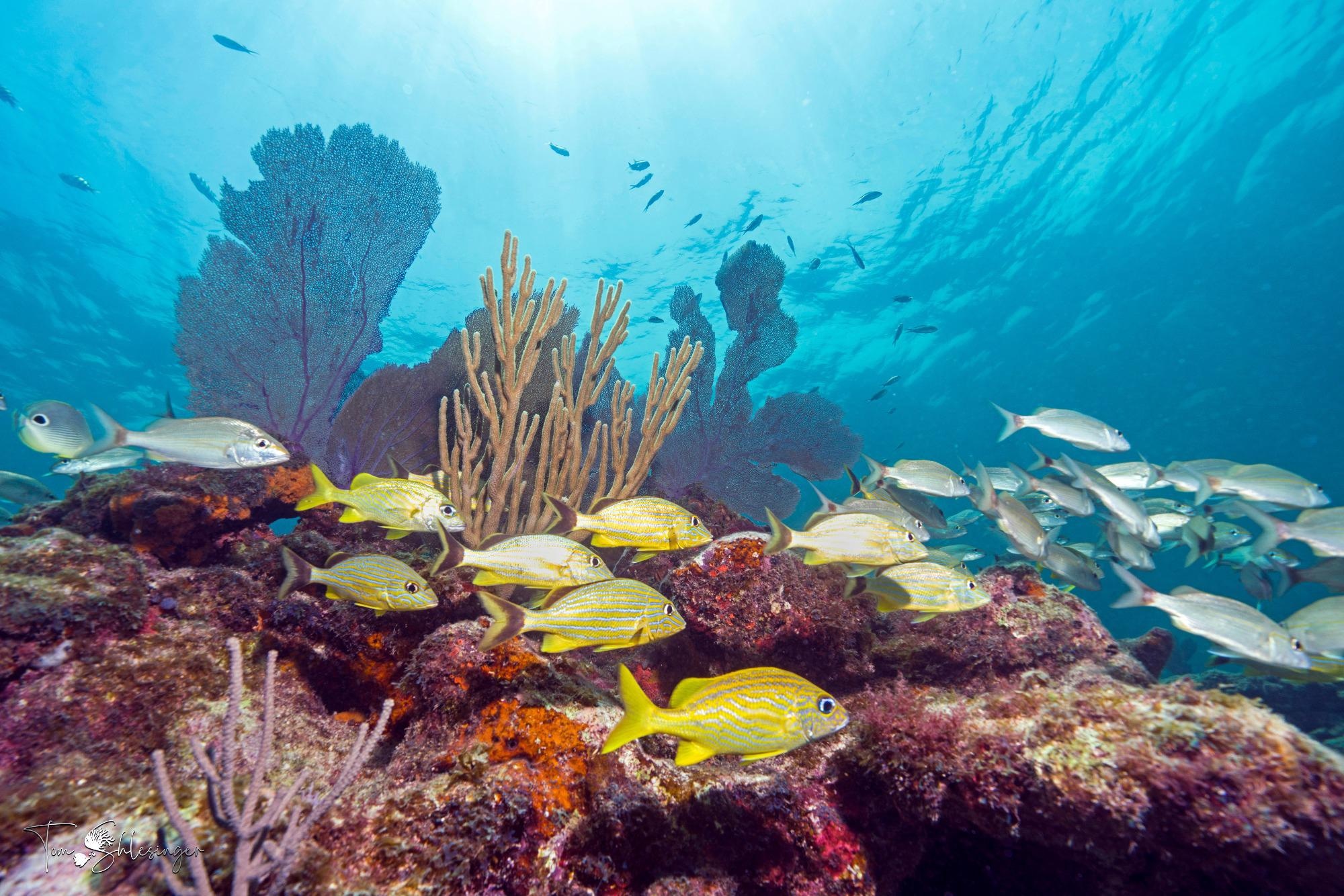May 28 2021
Scientists from Australia have recently announced a sharp fall in the abundance of coral along the Great Barrier Reef. Researchers have been observing comparable declines in coral colonies all over the world, inclusive of the Indo-Pacific region, the Florida Keys, and the reefs off Hawaii.
 Coral reef in the Florida Keys. Image Credit: Tom Shlesinger.
Coral reef in the Florida Keys. Image Credit: Tom Shlesinger.
The extensive fall has been fueled partially by climate-driven heat waves that are warming the oceans of the world and resulting in what is called coral bleaching, the collapse of the mutually advantageous relationship between resident algae and corals.
However, other factors contributing to the fall of coral reefs include overfishing and pollution.
As per a new study titled, “Local conditions magnify coral loss after marine heat waves,” published in the journal Science, what is crucial to coral reefs withstanding climate-driven heat waves and the following bleaching is mitigating global climate change—and local conditions.
We found a strong signal that local conditions influenced outcomes for corals after heat-stress events. Although some have argued that climate change is so overwhelming that conserving coral reefs on a local scale is futile, our study found that local impacts on coral reefs magnified the effects of climate-driven heat waves. This suggests that local action to conserve coral reefs can help reefs withstand the effects of climate change.
Mary Donovan, Study Lead Author and Assistant Professor, School of Geographical Sciences and Urban Planning, Arizona State University
The significance of local conditions to reef existence is usually overlooked, thereby making those who depend on coral reefs for their living or those who are stewards of the reefs feel hopeless. But coral reefs are considered to be deeply essential.
Coral reefs are important on a fundamental level for biodiversity.
Mary Donovan, Study Lead Author and Assistant Professor, School of Geographical Sciences and Urban Planning, Arizona State University
Donovan is also a member of ASU’s Center for Global Discovery and Conservation Science.
Overfishing and nutrient pollution are considered two local problems that can have a huge impact on the health of coral reefs. Overfishing drains the number of fish that consume algae and maintains the ecosystem of the reef in balance. For instance, exhausting the number of herbivorous fish can result in an excess of macroalgae, which can denote a stressed ecosystem.
At the same time, nutrient pollution from land, such as runoff from agriculture, golf courses, and urban development along the coastlines, endangers reefs greatly.
But both pollution and overfishing provide chances for management tactics that could promote the resistance of coral reefs to climate change.
Throughout the world, study data were gathered by professional researchers as well as trained and certified community scientists on behalf of Reef Check. Only the data gathered during and inside one year following a climate-driven bleaching event was examined to identify the health of the reef. At present, Donovan is using this study to local efforts to tackle conditions that damage reefs.
Coral reefs take up some of the smallest area on our planet but harbor the most species of any ecosystem on Earth, and they’re also incredibly important to people. People all over the world rely on reefs for food security, for coastal protection from storms and for other livelihoods. In many parts of the world, it isn’t only a question of beauty, but a question of survival.
Mary Donovan, Study Lead Author and Assistant Professor, School of Geographical Sciences and Urban Planning, Arizona State University
The co-authors of the study are Deron Burkepile, Marine Science Institute, University of California, Santa Barbara, and Department of Ecology, Evolution, and Marine Biology, University of California, Santa Barbara; Chelsey Kratochwill, Tom Shlesinger, Shannon Sully, and Robert van Woesik, Institute for Global Ecology, Florida Institute of Technology, Melbourne, Florida.
Additional authors are Thomas Oliver, Ecosystem Science Division, Pacific Islands Fisheries Science Center, NOAA Fisheries, Honolulu; Gregor Hodgson, Reef Check Foundation, Marina del Rey, California; Jan Freiwald, Reef Check Foundation, Marina del Rey, and Institute of Marine Sciences, University of California Santa Cruz.
The study was financially supported by the National Science Foundation and a grant from the Zegar Family Foundation.
Journal Reference:
Donovan, M. K., et al. (2021) Local conditions magnify coral loss after marine heatwaves. Science. doi.org/10.1126/science.abd9464.